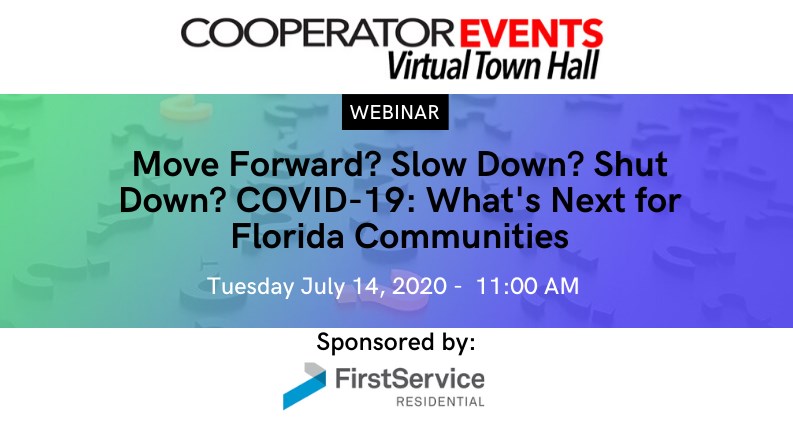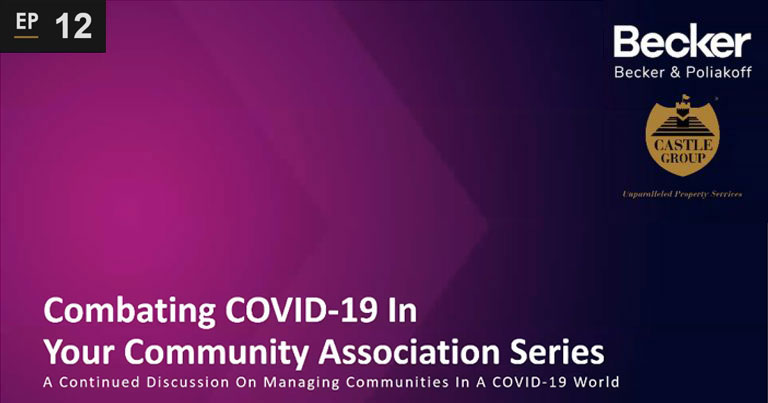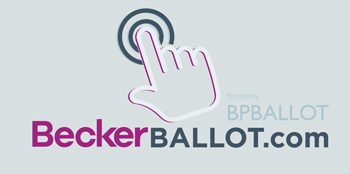Stay up to date with Becker’s dedicated resource page on COVID-19. We are updating the information on this site on a daily basis. All information is posted to educate and inform our clients but does not constitute specific legal advice for your community. Please consult your Becker attorney for questions specific to your own community. CLICK HERE
In this Issue
We know many of you are trying to navigate the delicate balance of protecting your occupants in the time of COVID-19 and also deal with the normal issues which community associations in Florida confront during the summer months. There is no getting around it, this is a tough time for everyone and community association leaders have additional considerations facing them constantly. This month’s issue seeks to highlight some of these considerations including what to do about holding membership meetings, preparing your association’s annual budget, and more.
With budget season approaching, boards may be wondering how best to prepare a budget when it’s anticipated that members will vote to waive or partially fund reserves. Find out the answer in “Does My Association Include Fully Funded Reserves in Its Proposed Budget?”
In our second article, “Be Wary of MRTA,” find out how you can prevent this little-known law from presenting big problems for your planned residential or commercial subdivision.
“Beachwood Villas Condominium v. Poor,” considers the validity and enforceability of board-adopted rules. Find out why THIS CASE is still important today.
Lastly, don’t miss out on this month’s Spanish article, “Diligencia Al Invertir En Comunidades Costeras.”
Mark D. Friedman, Esq. & Jay Roberts, Esq., Editors
-
 Does My Association Include Fully Funded Reserves in Its Proposed Budget?
Does My Association Include Fully Funded Reserves in Its Proposed Budget?With the budget season approaching, many condominium associations may wonder how to prepare a budget when it’s anticipated that members will vote to waive or partially fund reserves. The board must create a proposed annual budget that includes estimated revenues …
Continue Reading →
Be Wary of MRTA
A little-known law, which can present big problems for planned residential and commercial subdivisions, has undergone a number of recent changes intended to make it more manageable and less impactful on the associations which oversee or manage planned residential and commercial subdivisions.
While the law, commonly known as MRTA and formally known as the Marketable Record Title Act at Chapter 712, Florida Statutes, has been in effect in Florida since 1966 and is often overlooked and frequently misunderstood. What MRTA provides at its most basic level is that the title to real property can, with the passage of enough time and under certain circumstances, become free and clear of certain recorded claims, restrictions and covenants that would otherwise be binding on the property.
Beachwood Villas Condominium v. Poor
448 So. 2d 1143 (Fla. 4th DCA)
Since their earliest days, questions have arisen over the extent of the condominium association’s authority to impose restrictions on the use of the condominium property. The courts have long recognized that there are two types of restrictions: those contained in the declaration of condominium and the rules adopted by the board of directors. Restrictions contained in the declaration of condominium are “clothed with a very strong presumption of validity” and can be unreasonable so long as they are not wholly arbitrary in in their application, in violation of public policy, or that they abrogate some fundamental constitutional right (White Egret Condominium, Inc. v. Franklin, 379 So.2d 346 (Fla.1979)). However, board-adopted rules are subject to greater scrutiny by the courts.
In reviewing the enforceability of board made rules, the Fourth District Court of Appeals, in Beachwood Villas Condominium v. Poor, 448 So.2d 1143 (Fla. 4th DCA 1984), articulated the test to be used in determining whether a board-made rule is enforceable. The Beachwoods Villas case involved a challenge to the enforceability of two board-adopted rules which regulated the rental of units and the occupancy of units by guests, respectively. The trial court found that the board lacked the authority to adopt either rule. On appeal, the Fourth District reversed, and in doing so announced the test to be used in determining if board adopted rules are valid and enforceable.
In considering the validity of the rules adopted by the association, the Fourth District held that the Board had rule making authority in the condominium documents; and the rules did not contravene any right granted by, or reasonably inferable from, the declaration. Therefore, the court held that the rules were valid. The court also noted that rules can be found to be invalid when they are unreasonable or arbitrary. However, as these issues were not raised before the trial court, it was not an issue reviewed on appeal.
So why does THIS CASE matter? This case matters because it announces the legal test used to determine if a board-adopted rule is valid and this is the test that is still used today.
The test announced by the Beachwood Villas Court is as follows:
- The board of directors must be granted rule-making authority in the condominium documents; and
- The rule cannot conflict with any right contained within the condominium documents, nor any right which is “inferable” there from; and
- The rule must be “reasonable” and not discriminatory.
While not discussed by the Beachwood Villas Court, a “fourth” test which needs to be considered in connection with any board-made rule is that it be adopted in a procedurally correct manner. Subject to stricter requirements in your governing documents, rules regarding the use of the common elements or limited common elements can be approved at a board meeting with 48 hours’ notice. The notice of a board meeting where rules regarding unit use (in a condominium) or parcel use (in an homeowners’ association) are to be considered must be posted and mailed, delivered, or electronically transmitted to each owner at least fourteen days before the meeting. Always check your documents to ensure that unit owner approval is not required.
Diligencia Al Invertir En Comunidades Costeras
By: Maritrini Soto Garcia, Esq.
Aunque invertir y comprar una propiedad cerca del mar parece ser una inversión de un sueño hecho realidad, el cambio climático y el aumento del nivel del mar se han convertido en una amenaza existencial que puede afectar la viabilidad económica de invertir y comprar una propiedad en comunidades costeras. Excluyendo Alaska, la Florida es el estado con la costa más larga de los Estados Unidos.
Question of the Month
Q: The new law passed on “emotional support animals” is supposed to cut down on bogus requests. When does this law take effect and what are the details?
Shareholder David G Muller, Esq. discusses the answer to this and more.
CALL COVID-19 Survey
Ever wonder what other communities are really doing when it comes to navigating the COVID-19 crisis that rages on in Florida? Questions like, “which amenities were closed and when?” and “how many communities had active infections and how did they respond?”
Do you know what the real risks associated with operating a community association in the age of COVID-19 are and if those risks are geographically different?
Take CALL’s COVID-19 survey and gain the benefit of shared wisdom on these issues.
Can They Do That?
Episode 18: Property Ordinance Violation Fines – “Can They Do That?” – Episode 18 is Live!
I received a notice that my property is in violation of local code and ordinances and the city says it’s going to start imposing fines on my property. Can they do that?” Becker Shareholder Jeremy Shir discusses in a brand new episode!
When it comes to association rules and bylaws, there seem to be more questions than answers. Becker’s video series, “Can They Do That?” tackles some of the unique problems that homeowners and renters face today. We answer questions, no matter how far-fetched they may seem. From service animals to nudists in your community, we get to the bottom of it and let you know – “Can They Do That?”
Don’t miss out on new episodes of “Can They Do That?”
Subscribe to Becker’s YouTube channel!
2020 Florida Session: Legislative Update
By: Donna DiMaggio Berger, Esq.
With the legislative session closed and the deadline expired for Governor DeSantis to veto Florida House or Senate bills, we now know the laws that will affect community associations. Click here for a summary of some of these new laws impacting Florida community associations.
CALL’s forthcoming Legislative Guidebook will contain a more in-depth analysis along with some operational tips for your community to employ.
The Employer’s Playbook Webinar Series
Shareholder Jamie Dokovna discusses whether an employee, under the Family First Coronavirus Response Act, is entitled to pay when staying home with a child who is not in school. Find out the answer in episode 4 of The Employer’s Playbook!
“The Employer’s Playbook to COVID-19,” is a video series led by Employment Law Shareholder Jamie Dokovna. Each episode, Jamie answers employers’ questions on best practices for handling specific situations in the workplace.
Don’t miss out on new episodes! Subscribe to Becker’s YouTube channel.
CALLING ALL BOARD MEMBERS AND COMMUNITY MANAGERS
As a service to the community and industry, we are pleased to offer some of our most popular classes online! While our in-person classes remain suspended until further notice due to COVID-19, we are thrilled to bring you the following classes to participate in from the comfort of your own home.
HOA/Condo Board Member Certification – Watch Replay
Disaster Preparedness and Recovery – Watch Replay
Anatomy of a Water Leak – Watch Replay
Understanding Our Bylaws – Watch Replay
UPCOMING CLASSES
Is a “No Pet” Building a Thing of the Past? – COMING SOON
Statewide Suspension of Community Association Classes
Becker has been closely monitoring the latest coronavirus (COVID-19) developments. In the continued interest of the health and safety of our clients and colleagues, we have made a decision to continue the suspension of all Community Association classes until further notice.
As always, we will keep you informed of any changes and updates.
RECENT & UPCOMING WEBINARS
Community Associations In the Age of COVID-19: What Does the Future Hold?
As Florida’s COVID-19 numbers continue to rise, how do volunteer boards safeguard community residents and navigate guidelines and protocols? What can a Board do, and what can a Board not do, in response to the COVID-19 pandemic? How can your professionals assist the Board in these processes? Join Becker Shareholders Howard Perl and Jamie Dokovna on Wednesday, July 29 at 12:00 PM EST for an in-depth discussion with leading experts from AKAM, USI Insurance Services and The Water Restoration Group. Register now.
July 29
Safeguarding Community Residents: Navigating a Shifting Landscape and the Uncertainties Ahead
All types of community associations throughout Florida implemented strict protocols in response to the ongoing COVID-19 pandemic. These protocols included, in many cases, restricting entry to nonessential visitors, shutting down common areas and recreational amenities and requiring the use of facial coverings. As the push to reopen the economy continues while Florida’s COVID-19 numbers show no sign of letting up soon, the big question is – how do volunteer boards and their management professionals safeguard community residents in the months ahead? Shareholder Donna DiMaggio Berger moderates this discussion along with panelists from Kent Security Services, Insurance Offices of America, and Foxrock Management. Watch the replay.
July 19
Move Forward? Slow Down? Shut Down? COVID-19: What’s Next for Florida Communities
Donna DiMaggio Berger appeared as a panelist in a Virtual Town Hall sponsored by FirstService Residential. With Florida moving through phased reopening in the wake of the coronavirus pandemic – as infection rates are spiking in some areas – the question of how condo and HOA communities should handle amenities and common areas is as pressing as ever. Watch the replay.
July 14
Combating COVID-19 In Your Community Association Episode 12
Donna DiMaggio Berger, Esq. participated in episode 12 of the Castle Group’s COVID-19 webinar series. The series is being held bi-weekly to address how community associations can navigate the challenges brought on by this global pandemic. Watch the replay.
July 8
DID YOU KNOW?
Online Voting in Light of COVID-19 – BeckerBALLOT.com Is Here for You!
Are you wondering what to do about in-person membership meetings in light of COVID-19? Unfortunately, the community associations statutes are not presently drafted in a manner which allows forced participation through video conference or teleconference means. At Becker, we are teaming up with The Florida Bar in order to propose legislation to deal with this issue, but it very likely will not be in effect until mid-2021 due to the Florida Legislature’s session schedule. During this year’s annual meeting season, you will have to use the existing tools the law provides with regard to remote participation at membership meetings.
For most community associations, voting for directors may be done by sending in a ballot. For establishment of quorum and voting on all other non-election issues, limited proxies can be used. Remember, you do not need the original copy of the limited proxy. An executed scanned copy of the limited proxy is fine. While the foregoing is good, there is something that is better. Several years ago, the Florida Legislature approved the use of online voting for membership meetings. Participation through online voting (1) counts towards establishing quorum; (2) may be used in the election of directors; and (3) may be used for other substantive votes (e.g. governing documents amendment, surplus funds rollover, material alterations, etc.). The bottom line is that online participation may be the way of the future for community associations membership participation, and it is especially useful in dealing with pandemic environment.
Becker has teamed up with an integrated online software design team to create online voting platform, BeckerBALLOT.com. If you are not a first-time user of BeckerBALLOT.com, you know how helpful it is to attack the problem of apathy in membership initiatives. If you would like to implement BeckerBALLOT.com, please reach out to your attorney to discuss the prerequisite resolution and forms required (these are required no matter what online participation platform you use). To learn more about BeckerBALLOT.com, please visit www.BeckerBALLOT.com. If you decide to sign up, be sure to tell them that your association is a Becker retainer client, as there is a steep discount offered to our Becker clients!
DID YOU KNOW?
Becker’s 2020 Hurricane Guide is Here!
Community association boards and managers should ensure that their communities have adequate disaster planning measures in place as hurricane season approaches. To help you in weathering the storm, check out Becker’s Hurricane Guide which provides important tips and information to help protect your community.
Click here to view our new interactive Hurricane Guide webpage.




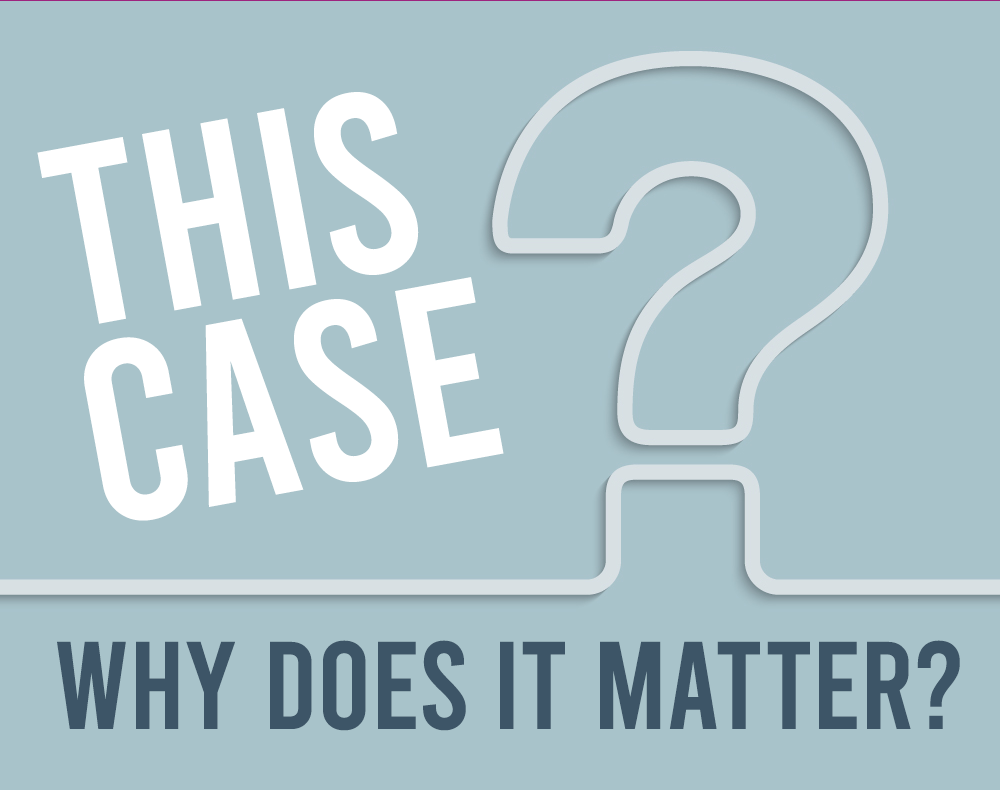


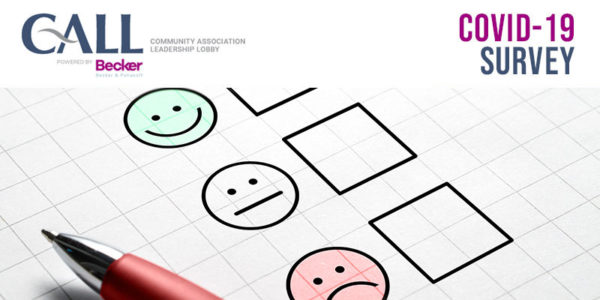

![look-[Converted]](https://www.floridacondohoalawblog.com/wp-content/uploads/2020/04/look-Converted.png)



